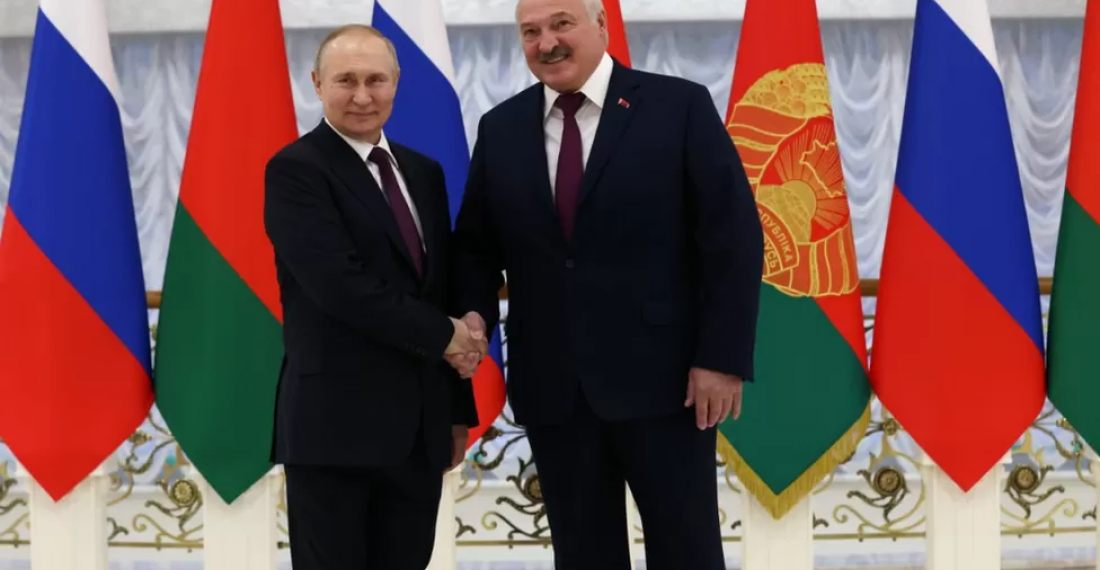Ukraine has announced on Monday (19 December) that it is increasing defenses along its northern border with Belarus amid concern that Russia may be preparing a second assault on Kyiv.
In conversation with BBC Ukraine, Deputy Interior Minister Yevhen Yenin said: "We are building up our defence lines all across the border with Russia and with Belarus." An increase in Russian military hardware and personnel in Belarus has been noted over the past few weeks.
On his part, the Kremlin spokesman Dmitry Peskov dismissed fears of a second invasion along Ukraine's norther border as "as totally stupid, groundless fabrications". Russia's defence ministry has also said that its troops in Belarus are there only for joint military exercises with Belarus.
Before its full-scale invasion of Ukraine on 24 February 2022, Russia had long insisted that the build-up of troops along its and Belarus' border with Ukraine was only for military exercises, dismissing fears of an all-out attack.
Ukraine's strengthening of defence along its northern border comes as Vladimir Putin met the Belarusian President Alexander Lukashenko in the Belarusian capital on Monday. It was the first time the two leaders met in Belarus for three-and-a-half years.
Following their meeting - in which President Lukashenko called himself and Putin "the most harmful and toxic people on the planet" - the Russian president ordered the strengthening of Russia's borders, and of social control inside Russia.
Despite Lukashenko having previously said that he would never allow Belarusian territory to be used to invade a third country, Russian troops launch their first failed attempt on Kyiv from Belarus. Belarus on the other hand as long resisted sending its own troops into Ukraine.






